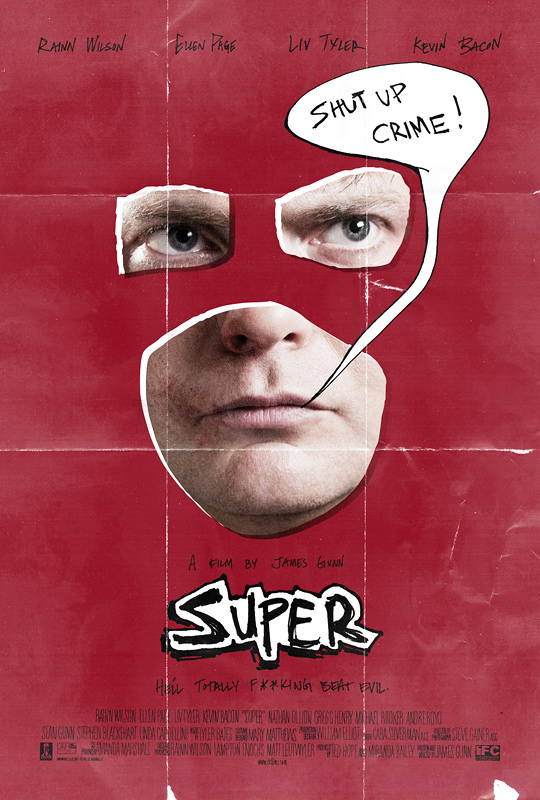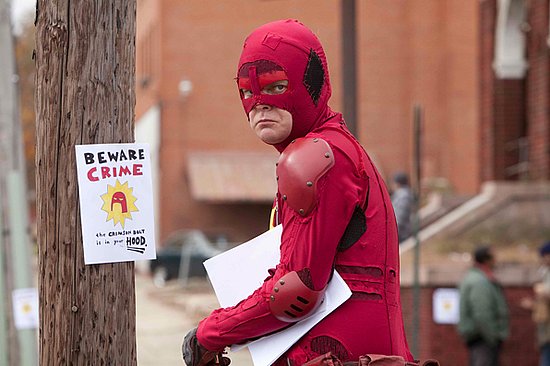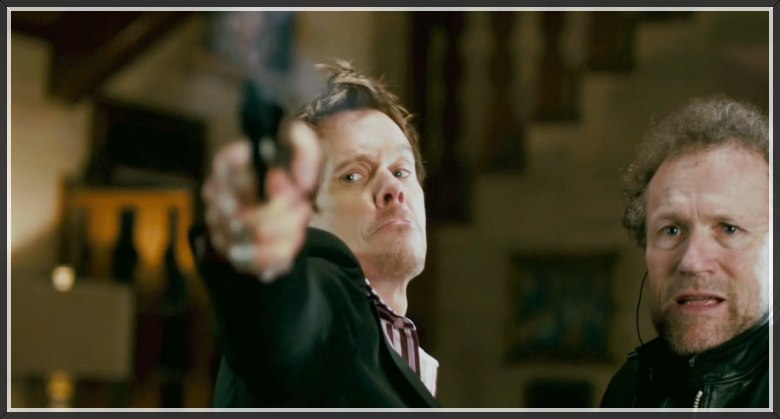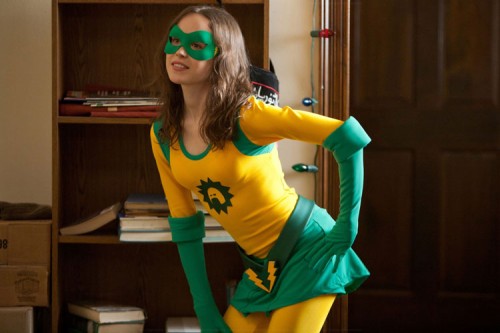Hollywood has become a tame animal this past decade. I don’t know if it’s because the directors that used to push the envelope like Kevin Smith, Peter Jackson, and Brad Anderson became more mainstream, or the audience just decided to glaze over and enjoy comfort film, but Hollywood went with it.
So it’s not that surprising that when two movies with the same premise of a normal Joe Schmo fighting crime, Super and Kick-Ass, came out, Hollywood went with the movie with a safe, MARVEL audience looking for a straight-up action movie. Unfortunately, it left fans looking for Super in limited release theaters and waiting for the movie to hit DVD shelves. Luckily, it was well worth the wait.
The plot of Super is not the story of your basic super-hero. Frank D’Arbo (played by Rainn Wilson) is a simple, religious short-order cook at a diner that is married to a beautiful recovering drug -addict Sarah (played by Liv Tyler). His two greatest achievements, or as he calls them, perfect moments, is marrying Sarah and pointing a police officer in the direction of a criminal. One day, Sarah leaves Frank for local crime-lord Jacques (played by Kevin Bacon). Frank can’t handle it, and goes to the cops, who show him up, then Jacques, whose thugs beat the crap out of him.
After a long bout of prayer, Frank is inspired to become a super-hero, The Crimson Bolt, beating up drug dealers, child molesters, and line-cutters with his trusty pipe-wrench. He later teams up with hot comic-book geek Libby (played by Elliot Page), who becomes Boltie and helps him take on crime and fight Jacques and his henchmen to save Sarah.
The movie is quite deeper than that. This awkward super-hero story has some in-your-face blood squirts, blown apart bodies, and a “touched by God” scene that would make any Troma fan remember why they loved James Gunn. It’s entertaining, goofy gore rather than disgusting. At the same time, there is a layer of comedy throughout the film that straddles the fence of slapstick and black comedy, more than just the campy Holy Avenger references with James Gunn as the Devil. It can be as simple as the joke of beating the crap out of someone for cutting in line (bringing up memories of Robocop 2), or as creepy as a super-hero yelling at a criminal like a little kid before stabbing him to death.
The depth of the movie takes on a few serious themes as well. For one, dependence, both emotional and drug-related, as is shown in the marriage of Frank and Sarah. The second is how true love is when you want someone to be truly happy, whether or not you are actually a part of that happy life. These themes do take a while to emerge in the film, but it works because it makes sure the movie does not get too heavy at the beginning. Later on, the emergence of these themes give this movie just the right depth to be an arguably awesome movie.
Of course, Elliot Page as comic book geek getting dressed up in a super-hero outfit and abusing criminals may demean that depth.
However, Page’s Libby plays the role of separating lust from love. Not that the stoic Frank really needs that, simpleton that he is, but it helps the audience realize this themselves: Frank, true love, and honor become the aspects of life: Frank as The Crimson Bolt become a split personality of lust, violence, and redemption, all of which are aspects of fantasy. We see Frank’s choice between the two in the last scene.
I give Super 4 out of 5 “symbols” of super-hero-dom.





